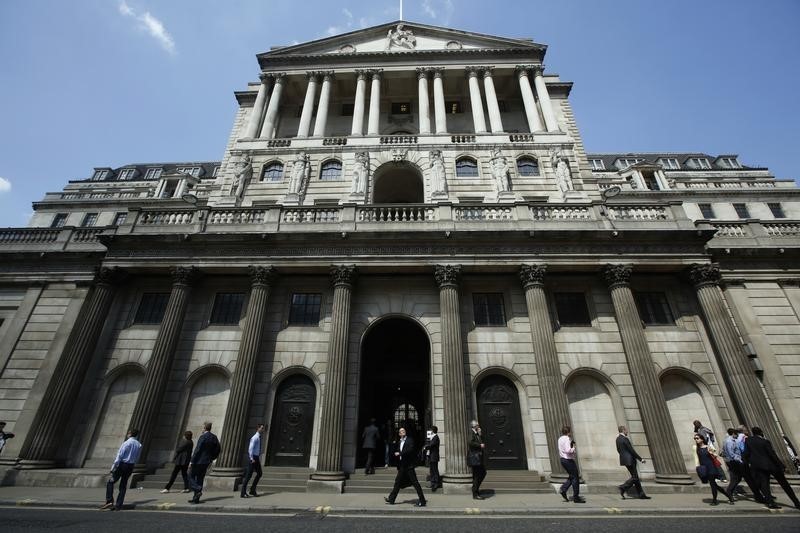Street Calls of the Week
(Bloomberg) -- Brexit will lead to a long period of sluggish growth in the U.K., putting the economy in an “unusual” slowdown for years, according to Bank of England policy maker Dave Ramsden.
In his first public speech since becoming deputy governor in September, Ramsden said that while the resilience of the economy since the 2016 vote to leave the European Union has been welcome, the longer Brexit uncertainty persists, the more likely it is that demand and investment growth will weaken.
The former Treasury official, one of two Monetary Policy Committee members to unsuccessfully vote against this month’s interest-rate increase, said that he has a different view of the economy from the majority of his colleagues. He said there may be more slack in the economy than headline figures suggest and that domestically generated inflation pressure is below levels consistent with the bank’s 2 percent target.
“I consider what we are witnessing as more of a saucer-shape slowdown and pretty unusual for that,” he said in a speech in London on Monday. “Given the long horizon over which the effects of Brexit could play out, we are likely to be on the flat part of the saucer for some time.”
The deputy governor said that if the BOE’s current forecasts of 0.4 percent quarterly growth over the next three years come to pass, the economy will be about 2 percent smaller by 2020 than expected in May 2016, the bank’s last predictions before the EU referendum.
Biggest Risk
That expected shortfall is in spite of a stronger global expansion since then, he said, adding that the biggest risk “is around the resolution of the current uncertainty about our eventual trading arrangements and the path that will be followed to reach them.”
Ramsden was a Treasury representative at MPC meetings for a decade, and was at the government department when it drew up its negative analysis in 2016 on the impact of leaving the EU. Those forecasts, as well as the BOE’s own views, drew the ire of pro-Brexit lawmakers, who said they were too pessimistic about U.K. prospects.
Explaining his dissent this month, Ramsden said there may be more room for the economy to grow without fueling price gains. That puts him at odds with his MPC colleagues, who have expressed concerns that spare capacity is dwindling and inflation pressures could build even if the economy grows at a slower pace. While Brexit may be holding back firms’ investment plans, workers are also keeping their wage demands in check amid the uncertainty, he said.
“In judging the appropriate balance to be struck when faced with a trade-off between returning inflation sustainably to target and supporting jobs and activity, one must pay close attention to any sign that above-target inflation is feeding through to second-round effects in domestic costs,” Ramsden said. “So far, that doesn’t seem to be the case.”
